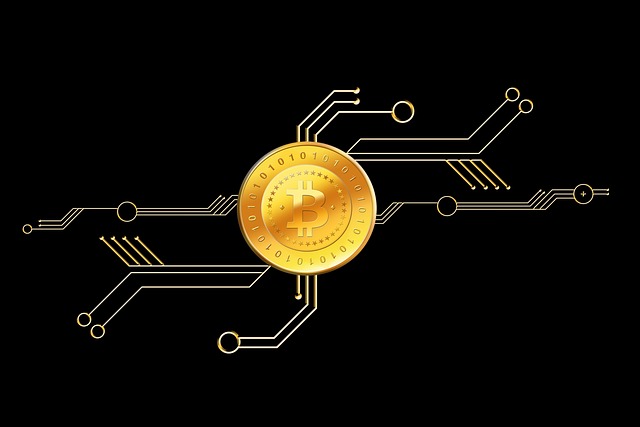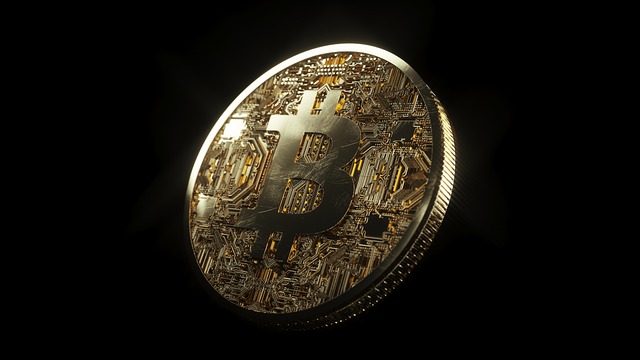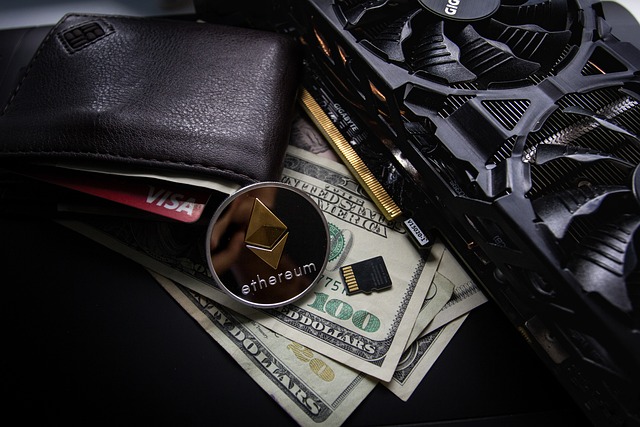The Advantages of Decentralized Finance: A Deep Dive
The Advantages of Decentralized Finance: A Deep Dive

I. Introduction to the Concept
The world of finance is evolving at a rapid pace, and one concept that has been gaining significant attention is decentralized finance. Also known as DeFi, decentralized finance refers to a financial system that operates on blockchain technology, aiming to eliminate the need for intermediaries such as banks or brokers. By leveraging the power of cryptocurrencies and smart contracts, decentralized finance aims to revolutionize traditional financial services and make them more accessible to individuals around the globe.
At its core, decentralized finance aims to empower individuals by giving them more control over their financial transactions and assets. With traditional finance, individuals often have to rely on banks or other centralized authorities to manage their money. In contrast, decentralized finance allows individuals to directly interact with blockchain networks and execute transactions without the need for third-party involvement.

2. Enhanced Privacy and Security: How Decentralized Finance Protects Your Data
Decentralized finance, also known as DeFi, offers a new approach to privacy and security in the financial world. With traditional financial systems, individuals often have to provide extensive personal information to access services, leaving them vulnerable to data breaches and identity theft. However, decentralized finance takes a different approach by leveraging blockchain technology.
By utilizing blockchain, decentralized finance ensures that user data is stored across a network of computers rather than in a centralized database. This distributed nature makes it significantly harder for hackers to compromise the system and access sensitive information. Additionally, the use of encryption and cryptographic techniques adds an extra layer of security to safeguard transactions and user data.
Moreover, decentralized finance ensures that individuals have full control over their personal information. Unlike traditional finance, which often involves sharing personal details with multiple institutions, decentralized finance allows users to retain ownership of their data. This means that users have the power to decide who accesses their information and under what circumstances, reducing the risk of unauthorized use or misuse. With enhanced privacy and security measures in place, decentralized finance is opening up new possibilities for individuals to transact online with peace of mind.
3. Financial Inclusion: Breaking Barriers with Decentralized Finance
Decentralized finance is revolutionizing the way people access financial services and breaking down barriers to financial inclusion. Traditionally, accessing loans, insurance, and other financial products required individuals to go through centralized intermediaries such as banks. Unfortunately, this excluded a significant portion of the global population who lacked the necessary documentation or credit history to qualify for these services.
However, with decentralized finance, anyone with an internet connection can participate in the global financial system. Through blockchain technology, decentralized finance platforms allow individuals to lend, borrow, and invest without relying on traditional financial institutions. This opens up opportunities for individuals in underserved communities, enabling them to access capital and grow their businesses. By leveraging the power of decentralized finance, we can break down the barriers that have historically hindered financial inclusion and create a more equitable and accessible financial system for all.
4. Lower Transaction Costs: Saving Money with Decentralized Finance
Decentralized finance, also known as DeFi, stands out as a revolutionary concept that has the potential to save individuals and businesses a significant amount of money in terms of transaction costs. In traditional financial systems, intermediaries such as banks, payment processors, and clearinghouses charge fees for facilitating transactions. These fees can quickly add up, especially for businesses that engage in numerous transactions on a daily basis. However, the decentralized nature of DeFi eliminates the need for third-party intermediaries, thereby reducing or even eliminating transaction costs altogether.
By utilizing blockchain technology, DeFi allows for peer-to-peer transactions directly between individuals or entities. This means that individuals can transact with one another without the need for a centralized authority overseeing the process. The inherent efficiency of blockchain technology not only ensures faster transaction times but also minimizes the fees associated with transactions. Moreover, since DeFi is accessible to anyone with an internet connection, it also eliminates geographical barriers, further lowering transaction costs for businesses operating across borders.
Overall, the cost-saving potential of decentralized finance is undeniable. Whether it is businesses seeking to streamline their operations or individuals looking to transfer money globally, DeFi offers a promising solution with its ability to reduce transaction costs significantly. As more and more individuals and businesses adopt DeFi, the potential for even greater cost savings becomes increasingly apparent.
5. Global Accessibility: The Power of Decentralized Finance for All
Global accessibility is one of the key pillars of decentralized finance (DeFi). Unlike traditional financial systems that are often limited by jurisdictional boundaries and bureaucratic processes, DeFi offers equal opportunities to individuals around the world. With just an internet connection, anyone can participate in DeFi protocols and access financial services previously unavailable to them.
The power of decentralized finance lies in its ability to bypass traditional intermediaries such as banks and financial institutions. This has opened up a world of possibilities for individuals who have been excluded from traditional financial systems due to various reasons such as high fees, lack of documentation, or geographical limitations. By leveraging blockchain technology, DeFi platforms enable individuals to transact directly with each other, reducing the need for intermediaries and empowering users to have full control over their finances. This not only provides greater financial freedom but also fosters financial inclusion on a global scale. In essence, decentralized finance is democratizing access to financial services and breaking down the barriers that have traditionally limited the participation of individuals worldwide.
6. Transparency and Trust: Building Confidence in Decentralized Finance
Transparency and trust are crucial elements when it comes to decentralized finance (DeFi). Unlike traditional financial systems, where information can be hidden or manipulated, DeFi offers a level playing field where all participants have access to transparent and auditable records. This increased transparency builds confidence among users and investors, as they can independently verify transactions and ensure that no fraudulent activities are taking place.
Furthermore, DeFi operates on a decentralized network, eliminating the need for intermediaries such as banks or brokers. This removes the potential conflict of interest that may arise in traditional financial systems, where intermediaries may prioritize their own profits over the interests of their clients. With DeFi, transactions are executed based on predetermined smart contracts, which are automatically enforced and cannot be tampered with. This not only increases transparency but also enhances trust among participants, as they can rely on the programmatic execution of transactions without the need to trust a third party.
7. Eliminating Middlemen: How Decentralized Finance Streamlines Processes
Middlemen have long played a prominent role in traditional financial systems, facilitating transactions between parties and earning a fee for their services. However, decentralized finance has emerged as a game-changer, offering a streamlined approach that eliminates the need for intermediaries. By leveraging blockchain technology and smart contracts, decentralized finance enables peer-to-peer transactions, connecting individuals directly without the involvement of third parties. This not only cuts down on transaction costs but also increases efficiency, as it removes the delays and complexities associated with intermediaries. With decentralized finance, transactions can occur seamlessly and swiftly, allowing individuals to have more control over their financial interactions.
One of the key benefits of eliminating middlemen through decentralized finance is the increased transparency and trust it fosters. In traditional financial systems, the involvement of intermediaries often brings forth concerns about hidden fees, biased advice, and potential conflicts of interest. In contrast, decentralized finance operates on a transparent and immutable ledger, ensuring that all transactions are recorded and accessible to anyone on the blockchain. This heightened transparency helps build trust among participants, as they can verify the integrity of transactions independently. By eliminating middlemen and relying on decentralized networks, individuals can engage in financial activities with greater confidence, knowing that their transactions are secure, transparent, and free from manipulation.
8. Enhanced Liquidity: Unlocking Opportunities with Decentralized Finance
Enhanced liquidity is one of the prominent benefits of decentralized finance, paving the way for numerous opportunities. In traditional financial systems, liquidity can be hindered by various factors, such as limited trading hours, intermediaries, and restricted accessibility. However, with decentralized finance, transactions are conducted directly between participants, eliminating the need for intermediaries and providing a seamless and efficient trading experience.
Decentralized finance platforms, powered by blockchain technology, offer a wide range of financial instruments, including decentralized exchanges and liquidity pools. These platforms enable individuals to lend, borrow, trade, and invest in a secure and decentralized manner, contributing to enhanced liquidity. The absence of intermediaries not only reduces transaction costs but also broadens the scope for participation, attracting a diverse range of investors and traders. As a result, decentralized finance allows for greater market depth and liquidity, unlocking opportunities for individuals around the world to engage in a global financial system previously accessible only to a few.
• Transactions are conducted directly between participants, eliminating the need for intermediaries
• Decentralized finance platforms offer decentralized exchanges and liquidity pools
• Individuals can lend, borrow, trade, and invest in a secure and decentralized manner
• Reduced transaction costs due to the absence of intermediaries
• Greater market depth and liquidity attract a diverse range of investors and traders
• Opportunities for individuals around the world to engage in a global financial system previously accessible only to a few
9. Smart Contracts: Automating Transactions with Decentralized Finance
Smart contracts are a revolutionary aspect of decentralized finance, enabling the automation of transactions without the need for intermediaries. These computer programs are built on blockchain technology, ensuring the execution of predefined conditions and eliminating the risk of human error or manipulation. With smart contracts, parties can set up agreements and trust that they will be executed exactly as programmed, providing efficiency, transparency, and security in financial transactions.
One of the key advantages of smart contracts is their ability to streamline complex processes. Traditional financial transactions often require multiple intermediaries and time-consuming paperwork.

10. Potential Risks: Understanding the Challenges of Decentralized Finance
Decentralized finance, despite its many advantages, is not without its share of potential risks and challenges. One of the foremost concerns is the lack of regulatory oversight and protection for users. Unlike traditional financial systems that operate under stringent regulations, decentralized finance platforms operate in a relatively unregulated space. This leaves users vulnerable to scams, frauds, and other malicious activities that can result in financial losses. Additionally, the absence of a central authority to oversee transactions and resolve disputes can make it difficult to hold anyone accountable in case of any wrongdoing. As a result, users need to exercise caution and conduct thorough research before engaging with decentralized finance platforms to minimize the risk of falling victim to fraudulent schemes.
Another challenge associated with decentralized finance is the technical complexities involved. While the underlying blockchain technology is highly secure, it requires a certain level of technical knowledge to navigate effectively. This can pose a barrier for individuals who are not well-versed in blockchain technology or who struggle with understanding complex financial concepts. Furthermore, the irreversible nature of transactions on decentralized networks can be intimidating for some users who are accustomed to the safety nets provided by traditional financial institutions. The responsibility of safeguarding private keys and wallets also falls solely on the users, making them susceptible to loss or theft if proper security measures are not followed. Therefore, it is crucial for individuals to acquire sufficient knowledge and take necessary precautions to mitigate these technical risks before participating in decentralized finance activities.
What is decentralized finance?
Decentralized finance, or DeFi, refers to a system where financial transactions and services are conducted on a decentralized network, typically using blockchain technology. It aims to eliminate the need for intermediaries like banks and allow users to have more control over their finances.
How does decentralized finance protect my data?
With decentralized finance, your data is stored on a blockchain, which is a secure and transparent digital ledger. Since the data is not stored in a centralized database, it is less susceptible to hacking or unauthorized access. Plus, you have more control over who can access your data.
Can decentralized finance help achieve financial inclusion?
Absolutely! Decentralized finance has the potential to break down barriers and provide financial services to those who are currently underserved or excluded from the traditional banking system. By using DeFi platforms, people can access financial services regardless of their location or background.
Will decentralized finance save me money on transactions?
Yes! One of the benefits of decentralized finance is lower transaction costs. Since there are no intermediaries involved, you can avoid hefty fees typically charged by banks or other financial institutions. This can result in significant savings, especially for frequent or large transactions.
Is decentralized finance accessible to everyone globally?
Absolutely! One of the key advantages of decentralized finance is its global accessibility. As long as you have an internet connection, you can participate in DeFi regardless of your location. This enables individuals from all over the world to access financial services and opportunities.
How does decentralized finance build transparency and trust?
Decentralized finance leverages blockchain technology, which provides transparency and immutability.

Can decentralized finance eliminate middlemen?
Yes, indeed! Decentralized finance aims to eliminate the need for intermediaries, such as banks or brokers, by directly connecting users through smart contracts and blockchain technology. This streamlines processes and reduces the costs associated with middlemen.
How does decentralized finance enhance liquidity?
Decentralized finance platforms often allow users to pool their funds together, creating liquidity pools. These pools enable individuals to easily trade or lend their assets, providing them with more opportunities to access liquidity and unlock value in their holdings.
What are smart contracts in decentralized finance?
Smart contracts are self-executing contracts with the terms of the agreement directly written into code. In decentralized finance, smart contracts automate transactions and ensure that the agreed-upon terms are met. They eliminate the need for intermediaries and provide greater efficiency and security.
What are the potential risks of decentralized finance?
While decentralized finance offers many benefits, it also comes with potential risks. These risks include smart contract vulnerabilities, regulatory uncertainties, market volatility, and the potential for scams or fraud. It’s important to understand these challenges and exercise caution when participating in DeFi.
Todays Featured Product:
Buy, exchange and grow your crypto securely with a Ledger hardware wallet, combined with the Ledger Live app. It’s never been easier to keep your crypto safe and accessible. Buy direct from Ledger.com and get todays Special Offers Here.




